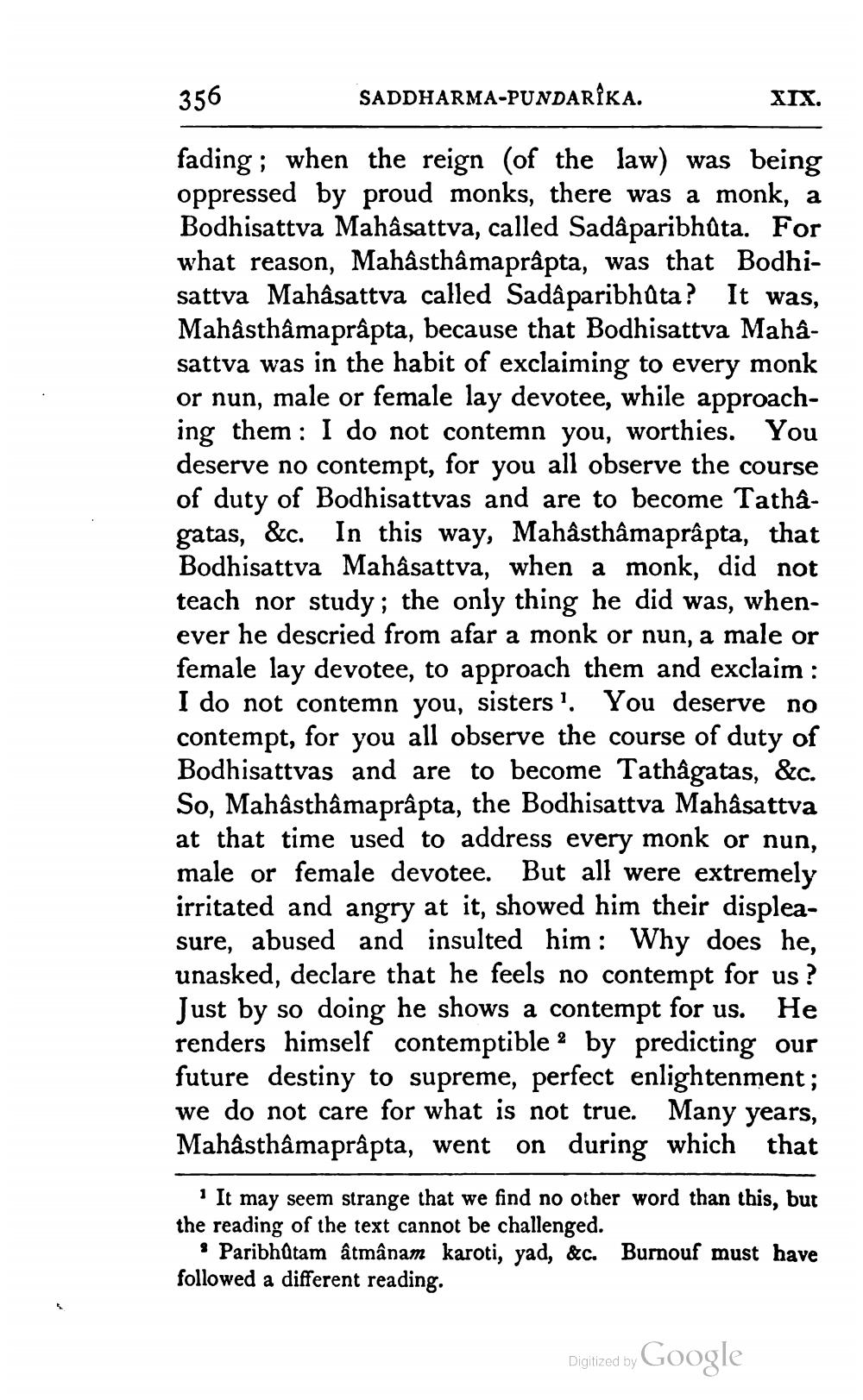________________
356
SADDHARMA-PUI
XIX.
fading; when the reign (of the law) was being oppressed by proud monks, there was a monk, a Bodhisattva Mahâsattva, called Sadâparibhůta. For what reason, Mahâsthâmaprâpta, was that Bodhisattva Mahâsattva called Sadâ paribhata? It was, Mahâsthâmaprapta, because that Bodhisattva Mahasattva was in the habit of exclaiming to every monk or nun, male or female lay devotee, while approaching them: I do not contemn you, worthies. You deserve no contempt, for you all observe the course of duty of Bodhisattvas and are to become Tathâgatas, &c. In this way, Mahâsthâmaprâpta, that Bodhisattva Mahasattva, when a monk, did not teach nor study; the only thing he did was, whenever he descried from afar a monk or nun, a male or female lay devotee, to approach them and exclaim : I do not contemn you, sisters'. You deserve no contempt, for you all observe the course of duty of Bodhisattvas and are to become Tathagatas, &c. So, Mahâsthâmaprâpta, the Bodhisattva Mahasattva at that time used to address every monk or nun, male or female devotee. But all were extremely irritated and angry at it, showed him their displeasure, abused and insulted him: Why does he, unasked, declare that he feels no contempt for us? Just by so doing he shows a contempt for us. He renders himself contemptible 2 by predicting our future destiny to supreme, perfect enlightenment; we do not care for what is not true. Many years, Mahâsthâmaprâpta, went on during which that
• It may seem strange that we find no other word than this, but the reading of the text cannot be challenged.
: Paribhatam átmânam karoti, yad, &c. Burnouf must have followed a different reading.
Digitized by Google




